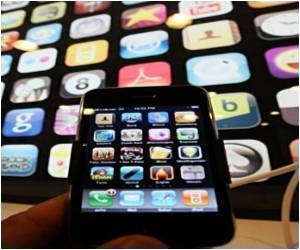A forecast has shown that the global tech industry has become a tale of two sectors, with mobile devices surging at the expense of older electronics that are struggling.

But half of the revenues will come from mobile connected devices -- smartphones, tablets and mobile computers, according to the forecast by the Consumer Electronics Association and GfK Research.
The industry has been buffeted by the huge shift to mobile, but also by sluggish global economic conditions, especially in recession-hit Western Europe.
The report said 2012 sales, which a year ago were expected to rise five percent, ended up falling one percent, dragged down by weakness in Europe.
Western Europe is expected to contract again in 2013, while North America will see tepid growth, and the chief drivers of tech growth will be from big emerging markets like China, the forecast said.
Steve Bambridge of GfK said that with many big economies in recession it will be hard to rev up tech sales.
Advertisement
"Were talking about a recovery in growth but a much more modest recovery."
Advertisement
"Tablets were a must-have item for both Western Europe and the US," he said, calling the devices probably the biggest growth item in the history of the industry.
But he said the surge in tablets and smartphones has meant people are forgoing other devices like laptop computers, small televisions for the bedroom or kitchen, or even digital cameras, since many of these functions can now be done on a tablet or phone.
"A lot of these old technologies are turning into apps," Koenig said. "We may end up seeing the whole hardware industry turn negative because it's all going into the cloud, into services."
Video game sales are flat or declining, he said, while mobile computers may be gaining some traction with new form factors: "Convertible" or "hybrid" computers that can function as tablets may erase memories of the failure of "ultrabooks," according to Koenig.
While many consumers are using tablets instead of a second television, Koenig said interest is growing in "jumbo" TVs with screens of 60 inches (152 centimeters) or larger.
"More and more sales are starting to happen at this super jumbo size," he said.
But so-called ultra HD televisions remain slow to capture the market because of the steep price tags of several thousand dollars, according to the CEA/GfK forecast, which showed the segment capturing just five percent of the US market by 2016.
Source-AFP









